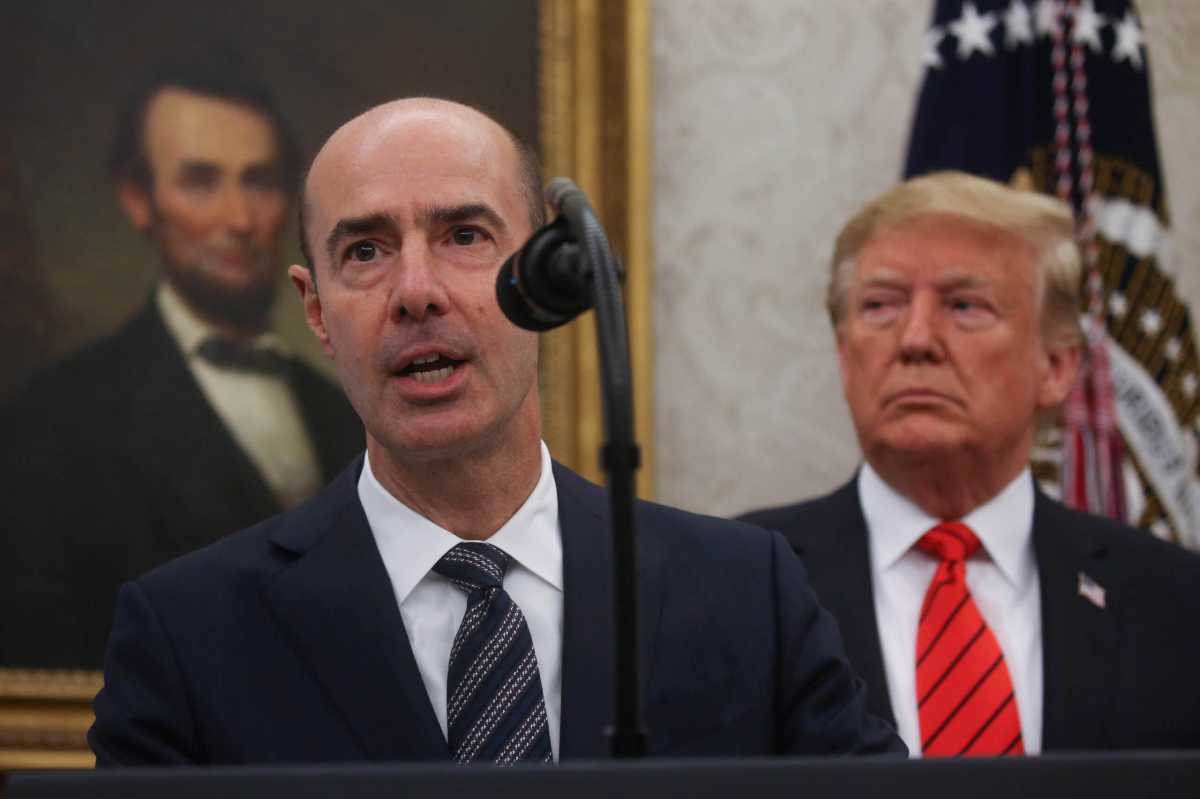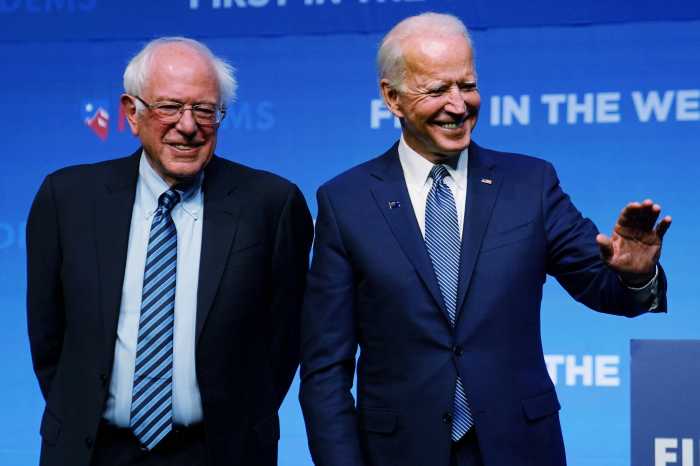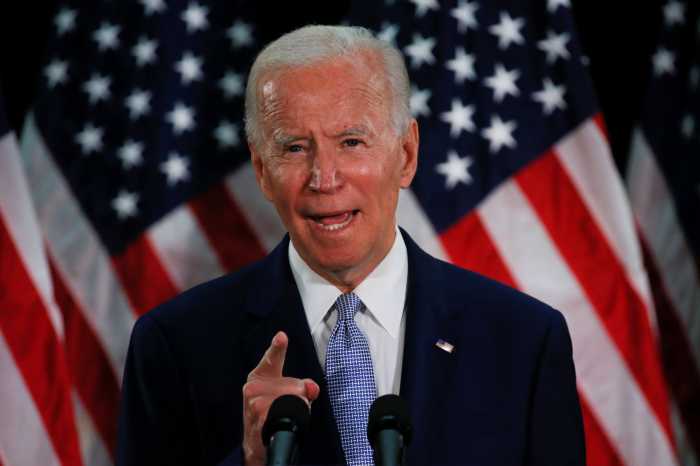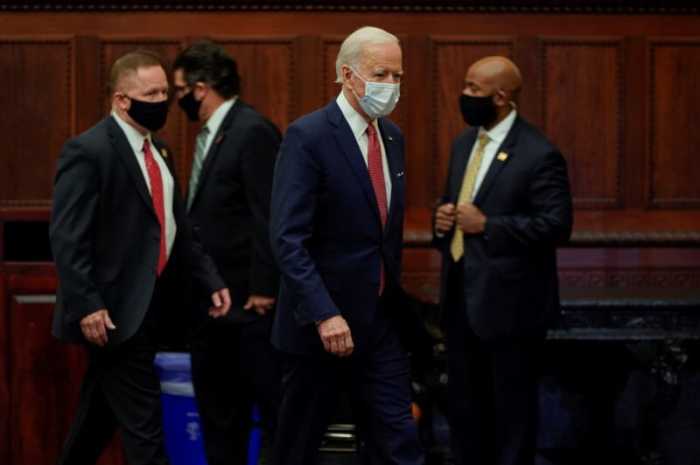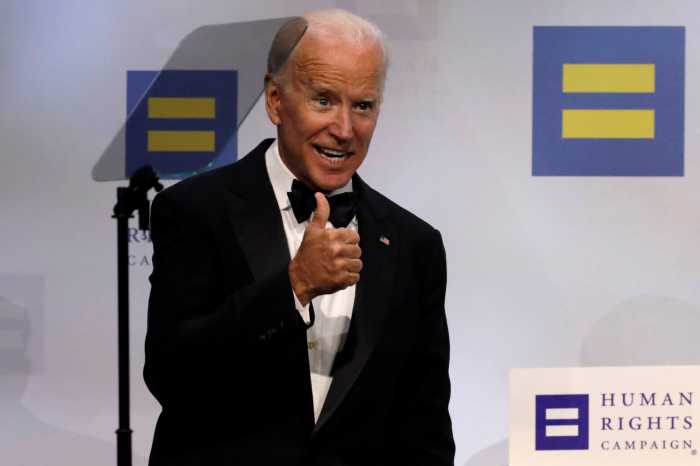With just over one month until Joe Biden becomes president, lame duck President Donald Trump is finalizing a rule expanding religious exemptions from regulations forbidding discrimination by businesses and other organizations contracting with the federal government.
The rule, first proposed in August of last year by the Department of Labor’s Office of Federal Contract Compliance Programs (OFCCP), gives federal contractors broader exemptions to use religion as a shield in ways that many say could negatively impact LGBTQ individuals and others, including people of color, religious minorities, and women. The rule is slated to go into effect on January 8, just 12 days before Trump will be forced to leave the White House — voluntarily or otherwise.
The rule will broaden the pool of employers eligible to claim religious exemptions, including for-profit groups, and it opens up more avenues through which contractors can justify discrimination with vague explanations.
In watering down LGBTQ nondiscrimination protections, president throws even more red meat to his base
Dating back to the original rule proposal last year, the current administration offered its own interpretation of former President Lyndon Johnson’s Executive Order 11246, which stipulated that private sector federal contractors must provide equal opportunity for employment on the basis of race, color, religion, sex, or national origin. The Trump team last year characterized the intent of Johnson’s order as “to make clear that religious employers can condition employment on acceptance of or adherence to religious tenets without sanction by the federal government, provided that they do not discriminate based on other protected bases.”
Trump’s proposal also insisted that Johnson’s order provided religious exemptions to “not just churches but employers that are organized for a religious purpose, hold themselves out to the public as carrying out a religious purpose, and engage in exercise of religion consistent with, and in furtherance of, a religious purpose.”
Former President Barack Obama, in 2014, issued Executive Order 13672 amending Johnson’s order to include sexual orientation and gender identity protections in federal contracting. Obama also added sexual orientation and gender identity as protected classes within the federal workplace by amending a similar nondiscrimination order by President Richard Nixon. At the time Obama acted, LGBTQ advocates praised him for making simple amendments to the previous executive orders rather than imposing any new religious exemptions.
The latest rule comes just months after the Bostock v. Clayton County Supreme Court ruling concluding that sexual orientation and gender identity are protected classes in employment under Title VII of the 1964 Civil Rights Act. That ruling is anticipated to have a broader impact on LGBTQ protections beyond employment as courts examine the scope of nondiscrimination protections in other areas, such as housing, public accommodations, access to credit, and in public schools and universities.
However, Bostock is more relevant to an individual’s right to sue and claim discrimination compared to executive orders relating to the government’s enforcement of non-discrimination rules for contractors, leaving it unclear exactly how Trump’s finalized rule will play out.
The final rule is notably being finalized at a time when the Department of Labor is led by the son of the late far-right Supreme Court Justice Antonin Scalia, Labor Secretary Eugene Scalia.
“Religious organizations should not have to fear that acceptance of a federal contract or subcontract will require them to abandon their religious character or identity,” Scalia said in a written statement. “This rule gives full effect to Executive Order 11246’s protection of religious organizations.”
The administration’s rule repeatedly cites older court cases and executive orders to justify its provisions, such as the portion of Johnson’s executive order that states religious organizations are allowed to prefer in employment “individuals of a particular religion.”
“The religious exemption allows religious contractors not only to prefer in employment individuals who share their religion, but also to condition employment on acceptance of or adherence to religious tenets as understood by the employing contractor,” the administration’s final rule notes, taking the Johnson administration construction in a more expansive direction.
In another example, the administration looked back to Spencer v. World Vision, Inc., a federal court case from 2010 that gave the Christian group World Vision the ability to hire based on religious beliefs. In that case, Ninth Circuit Court of Appeals Judge Diarmuid O’Scannlain outlined a three-question test to determine an organization’s eligibility for religious exemptions under Title VII.
Now the administration is adding a fourth requirement to the World Vision test, stipulating that a contractor working with the government “either operates on a not-for-profit basis; or presents other strong evidence that it possesses a substantial religious purpose,” paving the way for for-profit groups to become eligible.
“OFCCP acknowledges that in certain rare circumstances, an organization might not satisfy the non-profit prong of the World Vision test yet still presents strong evidence that it possesses a substantial religious purpose,” the finalized rule states. “Thus the regulatory text includes an alternative means of satisfying the fourth prong: when an organization does not operate on a not-for-profit basis, it must present ‘other strong evidence that it possesses a substantial religious purpose.’”
Relatedly, the administration further clarified the definition of religious groups, stating, “To qualify as religious a corporation, association, educational institution, society, school, college, university, or institution of learning may, or may not: have a mosque, church, synagogue, temple, or other house of worship; or be supported by, be affiliated with, identify with, or be composed of individuals sharing, any single religion, sect, denomination, or other religious tradition.”
The Trump administration’s proposed rule was unsurprisingly shrouded in controversy, drawing more than 109,000 comments. The Department of Labor acknowledged many critical comments and dismissed them anyway, such as one area in which the administration admitted some folks argued that the rule would violate the Establishment Clause, which is supposed to prevent the government from favoring a particular religion.
“Regarding the comment that the rule violates the Establishment Clause by funding positions that require specific religious beliefs or customs, that is a criticism of the E.O. 11246 religious exemption itself, which has been part of federal law for nearly twenty years and is not at issue in this rulemaking,” the rule states.
In another example with potentially the most far-reaching implications, the administration pointed to comments that “specifically objected to OFCCP’s reliance on Hobby Lobby” — a landmark 2014 Supreme Court case concluding that a closely held for-profit corporation can be exempt from rules that cut against its religious beliefs — “as justifying or requiring the proposed removal of the nonprofit status factor…”
The administration also cast those concerns aside.
“In consideration of these comments, OFCCP is revising the definition of Religious corporation, association, educational institution, or society in the final rule… With that said, OFCCP recognizes that, in certain rare circumstances, an organization might be for-profit yet still be fairly considered a religious rather than secular organization.”

The rule drew strong criticism from LGBTQ groups, especially legal groups.
“It is hard to overstate the harm that the Office of Federal Contract Compliance Programs is visiting on LGBTQ people, women, religious minorities, and others with the sledgehammer it is taking to federal nondiscrimination protections,” Lambda Legal’s director of law and policy, Jennifer Pizer, said in a written statement. “For nearly 80 years, it has been a core American principle that seeking and receiving federal tax dollars to do work for the American people means promising not to discriminate against one’s own workers with those funds. This new rule uses religion to create an essentially limitless exemption allowing taxpayer-funded contractors to impose their religious beliefs on their employees without regard to the resulting harms, such as unfair job terms, invasive proselytizing and other harassment that make job settings unbearable for workers targeted on religious grounds.”
Lambda Legal senior attorney Sasha Buchert also weighed in with warnings that the rule “effectively allows almost any federal contractor to claim a right to fire a person, deny health benefits or take other forms of discriminatory action for marrying a same-sex partner or coming out as transgender, or who the employer or would-be employer discovers is transgender, for living in accordance with their gender identity.”
Lindsey Kaley, staff attorney for the ACLU’s Ruth Bader Ginsburg Liberty Center, also slammed the administration after the final rule was issued.
“This rule is the latest chapter in the Trump administration’s years-long story of aggressively targeting LGBTQ people for discrimination,” Kaley said in a written statement. “Federal contactors should be clear — religion is not a license to discriminate. This rule does not override decades of court precedent on what constitutes a religious corporation or otherwise give contractors permission to violate existing federal law.”
Kaley added, “We are urging the Biden administration to act swiftly to reverse this rule and others that have undermined our nation’s civil rights laws. If the Biden administration fails to act, the ACLU is looking into legal options that would ensure LGBTQ people and others are protected from discrimination.”
While Biden is widely expected to take steps to curtail the damage imposed by the Trump administration, it is not immediately clear how much he could counteract the latest rule — and how long that process might take to clear bureaucratic hurdles.
To sign up for the Gay City News email newsletter, visit gaycitynews.com/newsletter.

